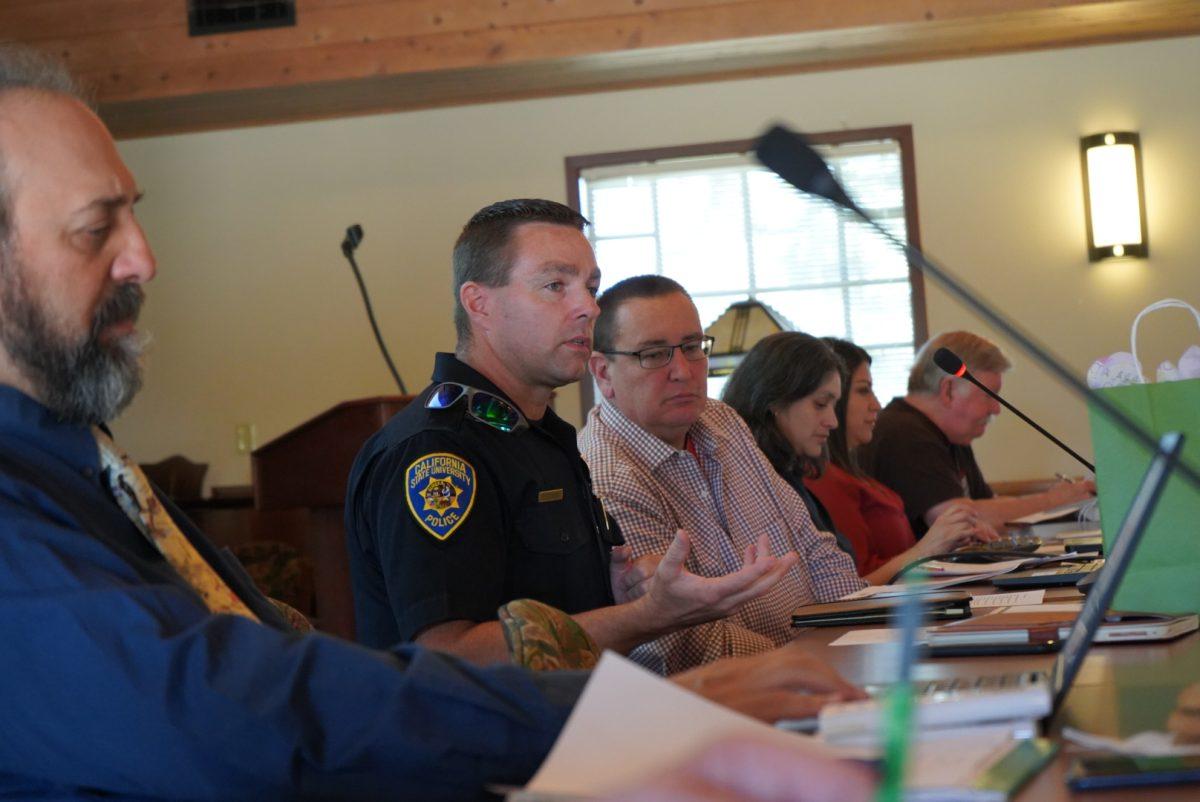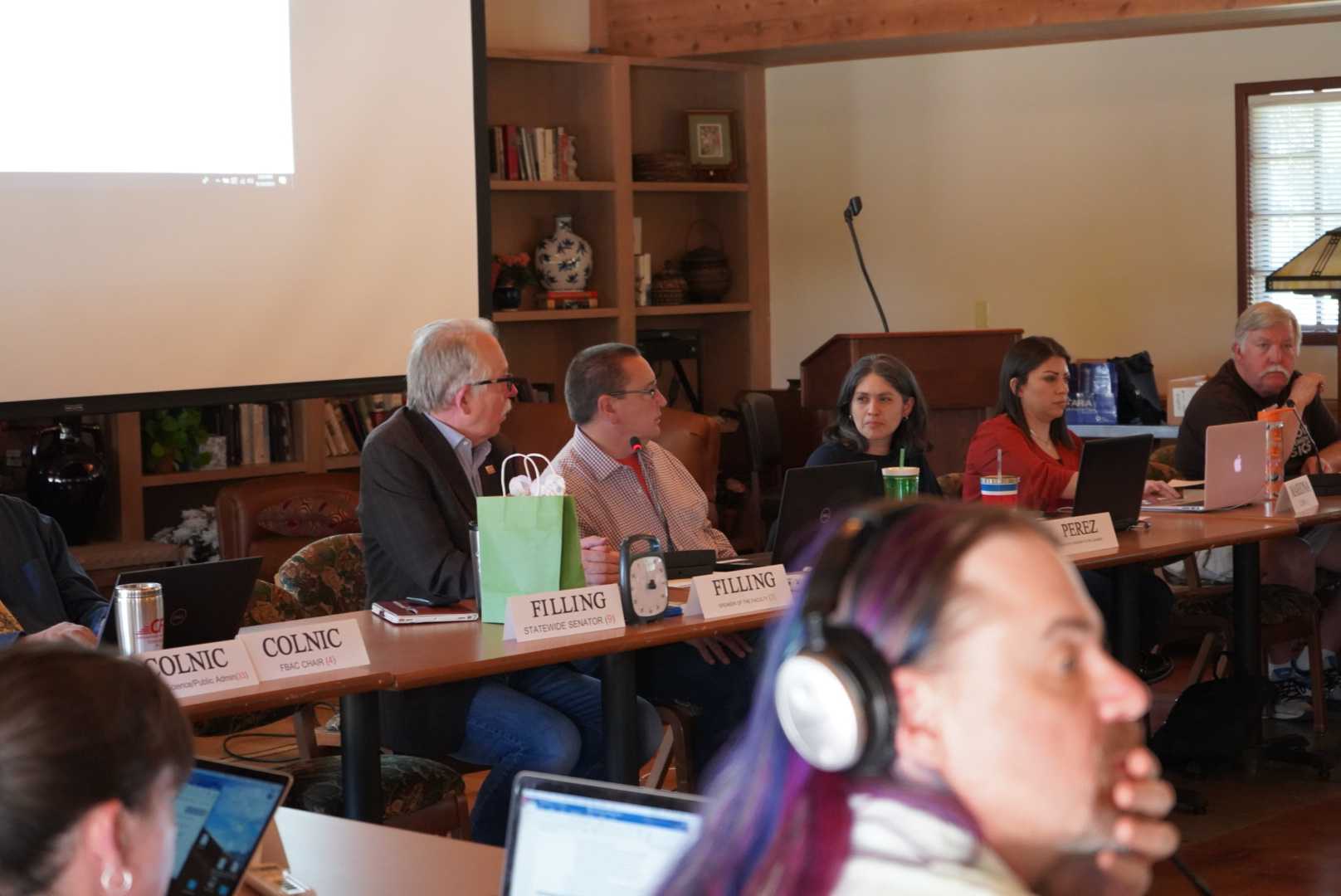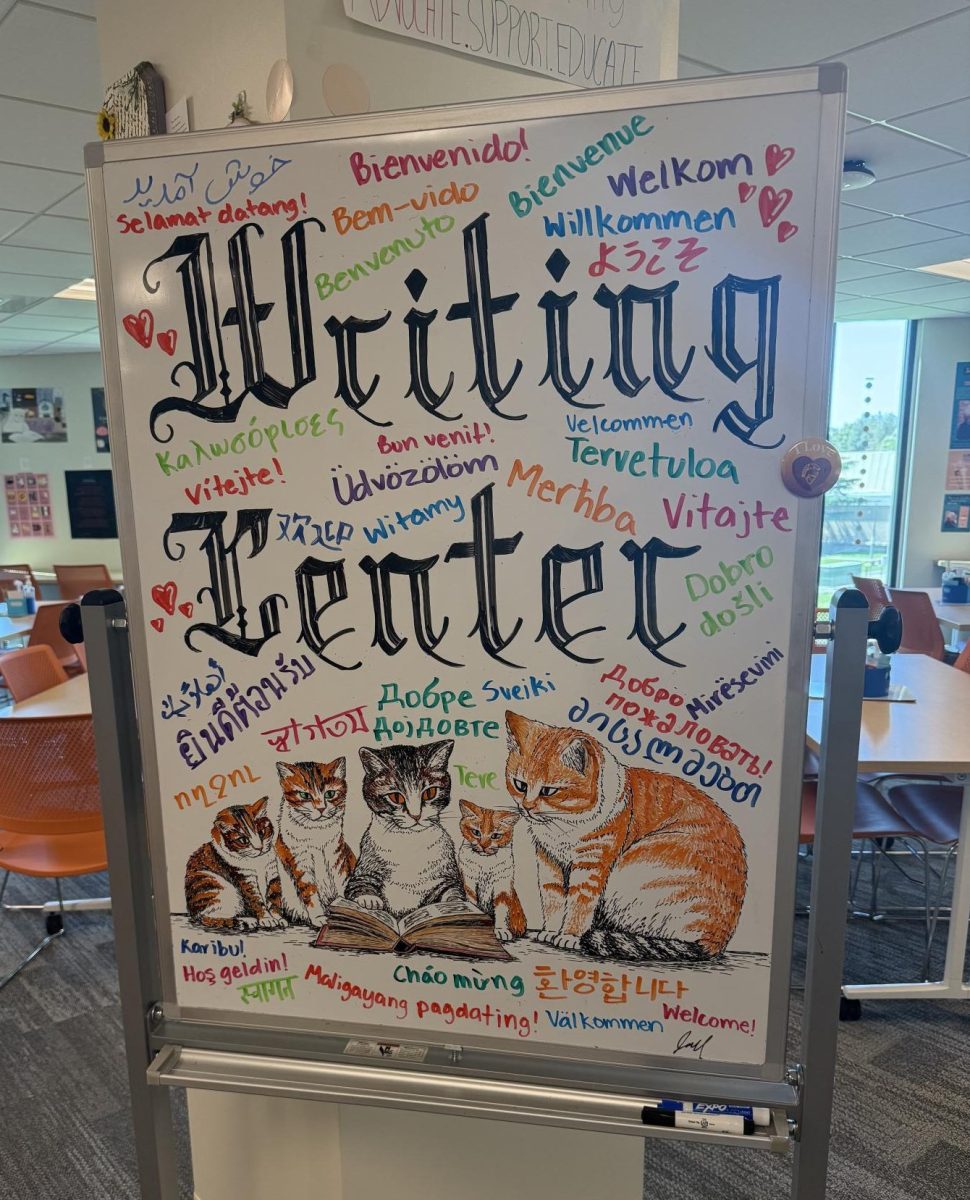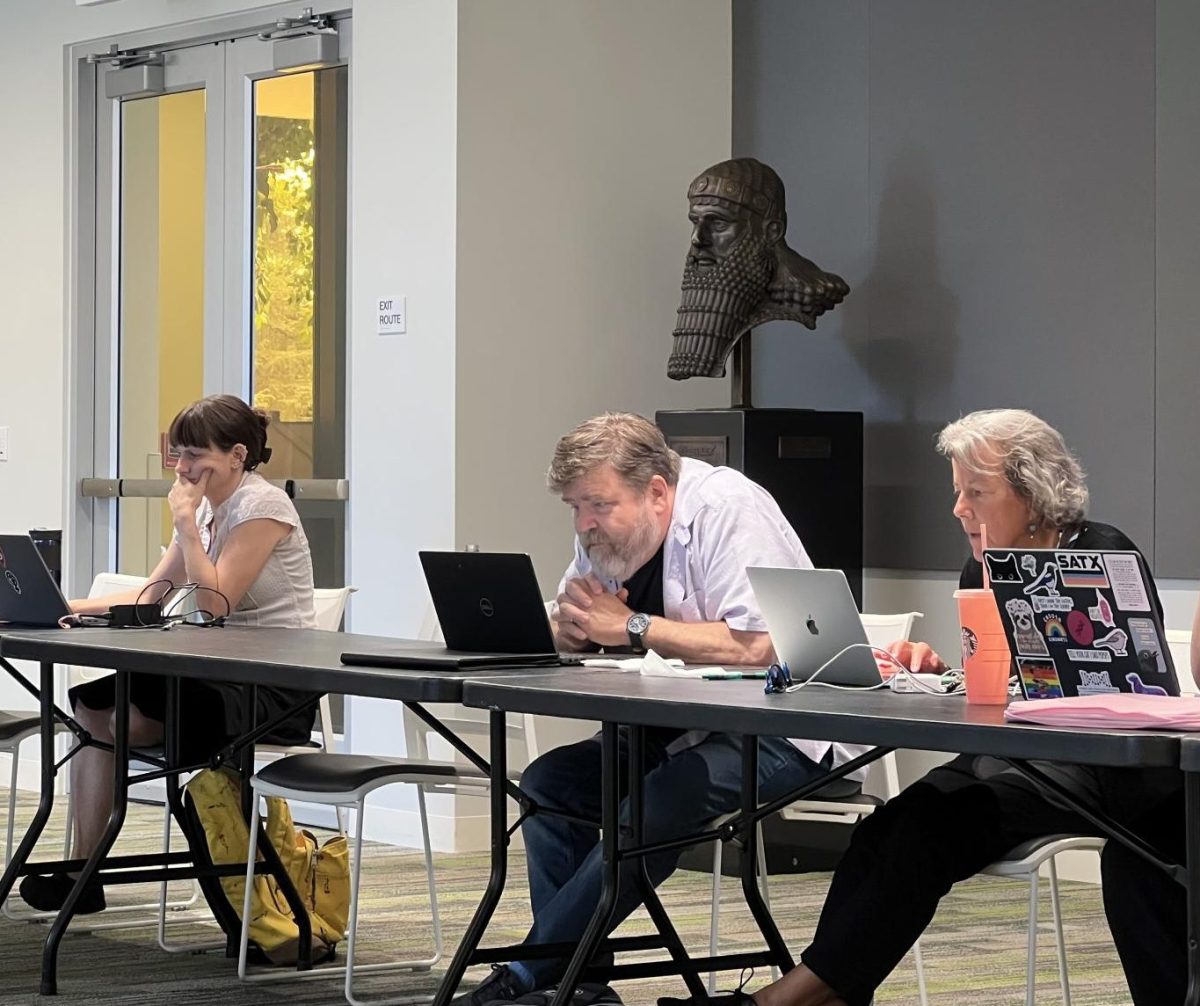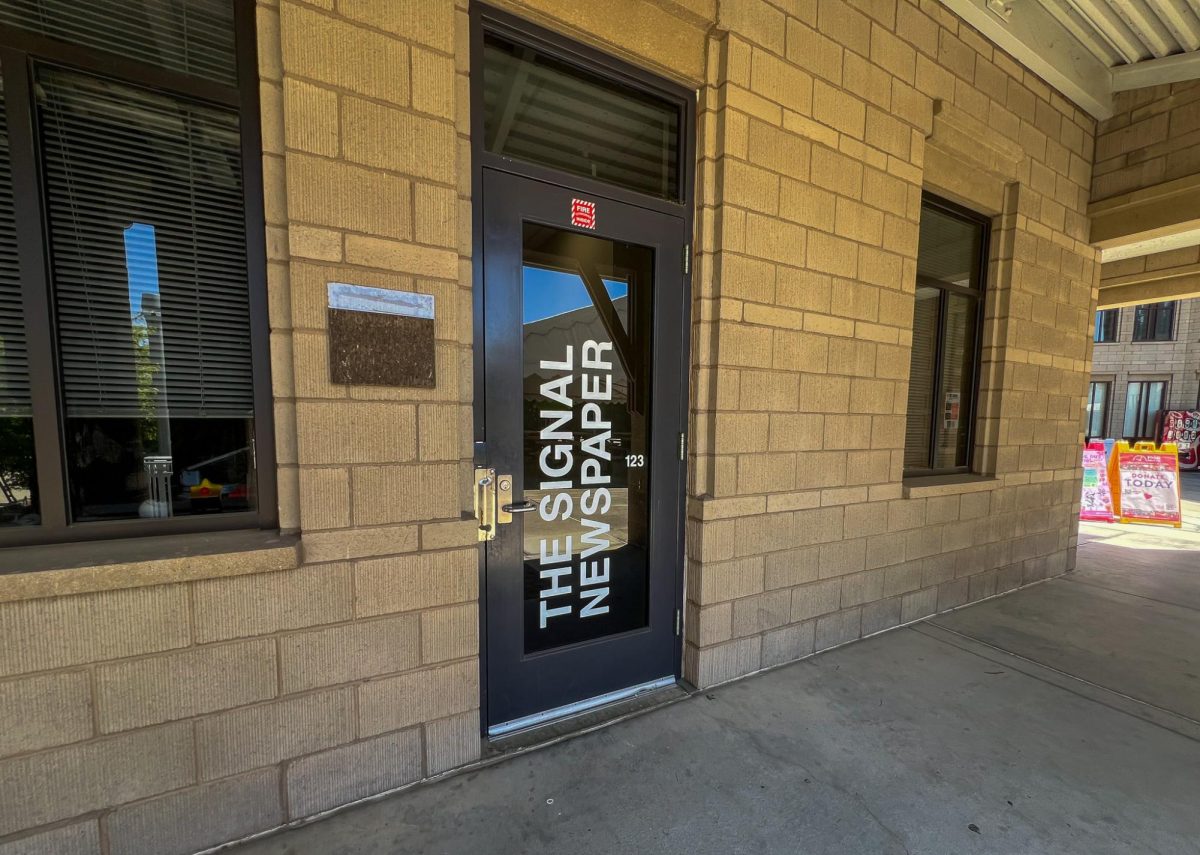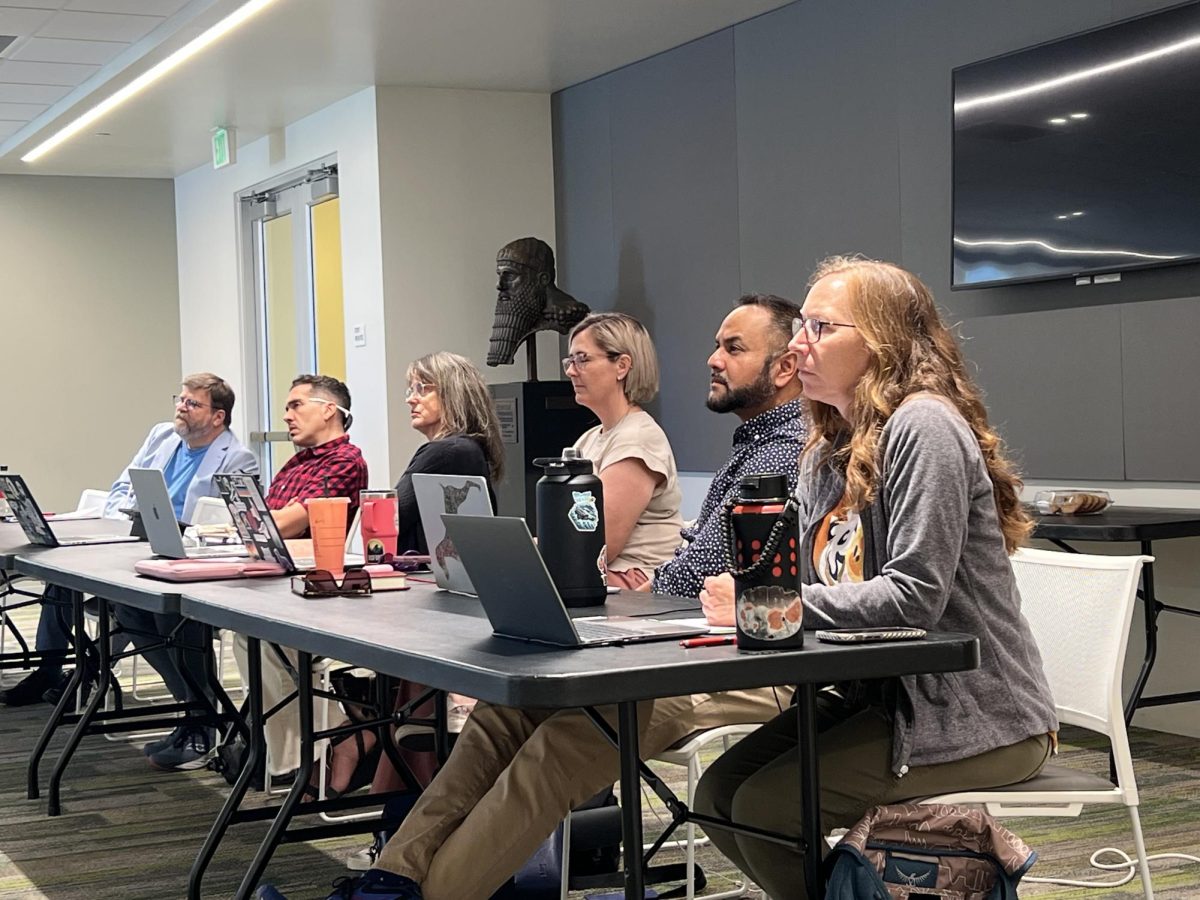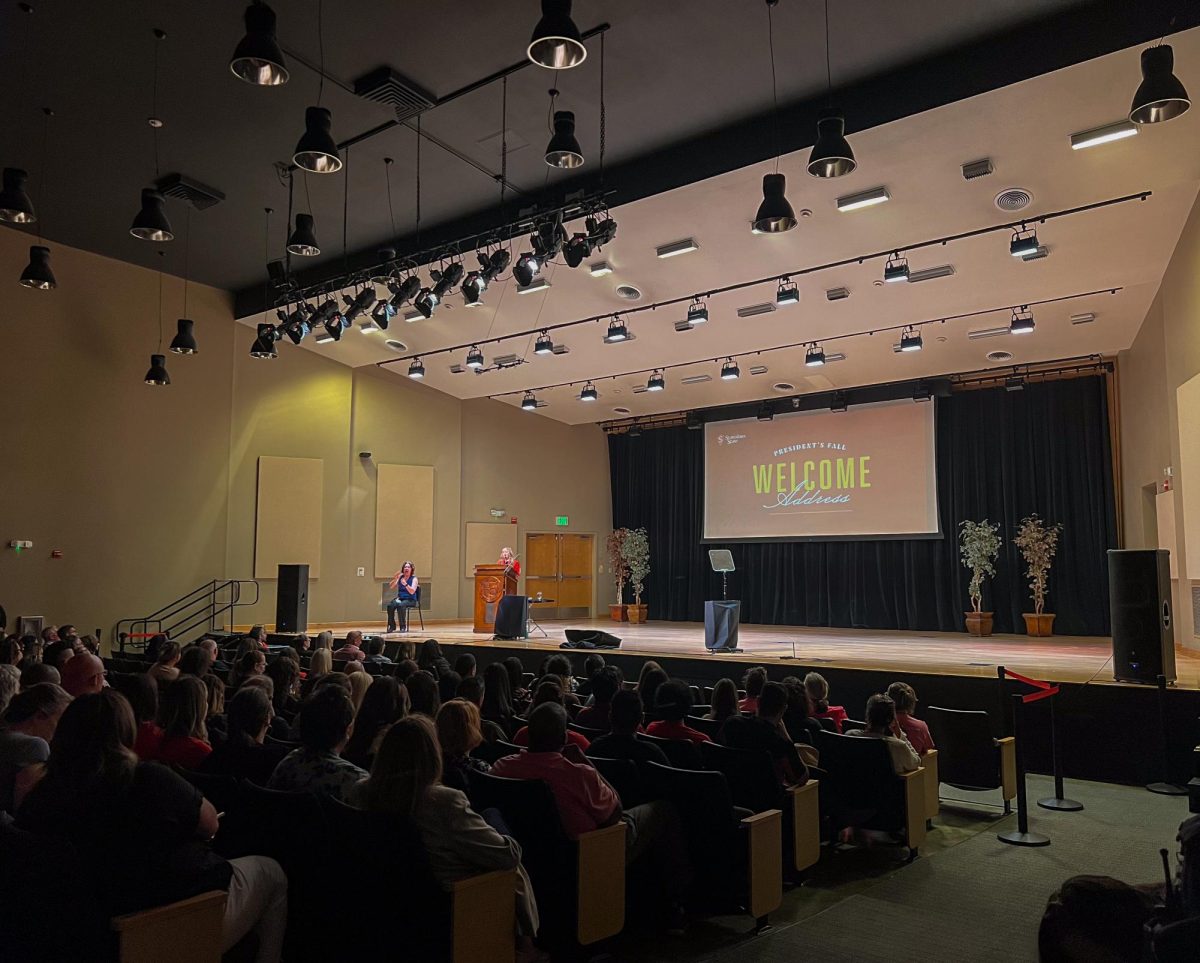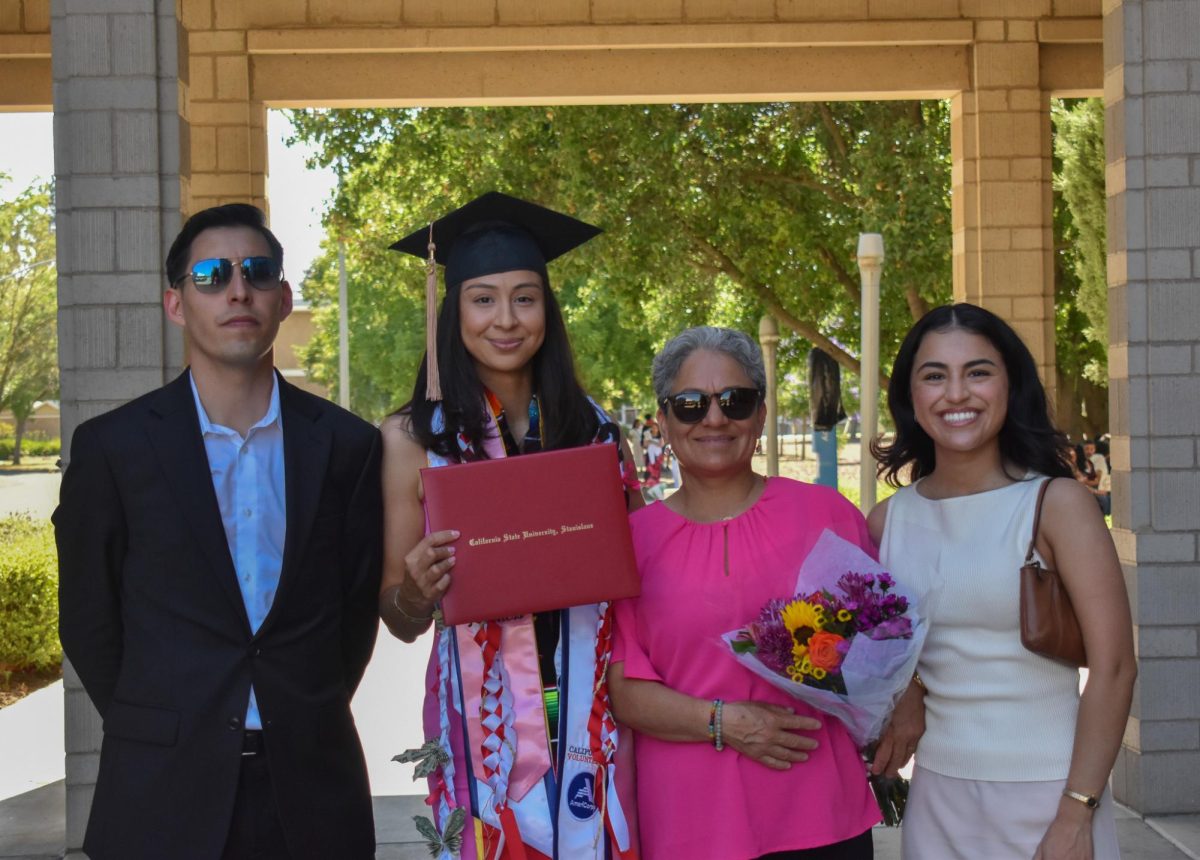The first academic senate meeting of the school year was held today and led by Dr. Filling. Topics that were discussed were: an active shooter preparedness class for faculty, nominations for CSU Honorary Degree Recipients, implementing literacy into curriculum and new funding for faculty.
Active Shooter Preparedness
Due to Turlock High School having a possible active shooter on campus today, the University Police Department’s (UPD) Chief, Clint Strode, began by discussing the option for faculty on campus to participate in an active shooter preparedness training this October.
“Unfortunately today we have to worry about things we didn’t have to worry about necessarily 15 years ago, and I know this is not necessarily our favorite topic to talk about, but one of the things that Ellen [President Junn] addressed in her recent addressed to campus is getting ready for any mass casualty, active shooter type event,” Chief Strode states.
UPD is conducting this voluntary training on campus alongside an outside cooperation, Knowledge Saves Lives INC. This cooperation is made up of current and former law enforcement with expertise on how to survive an active shooter.
“I think it is very important as we prepare for large scale down the road [events] to make sure we do the groundwork ahead of time and that is to make sure everyone knows what their role is and feels like they know what to do so they are more willing to participate in a large scale event” Chief Strode adds.
CSU Honorary Degree Recipient Nominations
Nominations for CSU Honorary Degree Recipients have begun for this academic year of 2019/2020.
Dr. Filling began discussing the submission process for identifying prospective nominees for an honorary doctorate by the CSU Board of Trustees.
“Submissions should be in acknowledgment of the following marks of distinctions:… inspirational character, excellence, and extraordinary achievement in significant areas of human endeavor that reflect the objectives and ideals of the California State University, meritorious and outstanding service to the California State University collectively or to individual campuses…, and services as an example of the California State University’s aspirations for its diverse student body,” Dr. Filling said.
Information Literacy as a Core Concept
Dr. Mark Thompson, University Educational Policies Committee (UEPC) representative, started the conversation about UEPC’s goal of information literacy as a core concept. Thompson said, “when I think about information literacy offered in the curriculum, I kind of think of in a negative way what if we don’t offer that kind of instruction at some level of saturation in the curriculum and I think it would be frankly unconscionable not to do that.”
Thompson asked, on the behalf of the UEPC, that the academic senate make a resolution that embraces information literacy as a core competency. He asked the media literacy and visual literacy to be very carefully incorporated into the curriculum.
Dr. Chris Negal, Lecturer Faculty Representative, said, “I think that no one in this room would deny the significance or importance of information literacy.” Negal was more worried about how the Senate would institutionalize information literacy and how it would fit into a “bounded up” and restricted curriculum.
Negal voiced his opinion that the process of understanding how, and who, and in what way information literacy is systematically introduced into the curriculum is the right way to do things. “It’s a slow way, it’s a frustrating way, but I think it is the appropriate way,” said Negal.
New Faculty Funding
The next topic of the meeting was lead by Dr. Kimberly Greer, Provost/Vice President. She discussed new funding and its strategic plan.
Greer listed the five priorities that the new funding would be contributed to, which included: the Stock center, graduate education increase of diversity in faculty, faculty led study abroad and integrated advising.
Greer said, “we have about 1.6 million in base funding for lecturers which has allowed us to cover all full time lecturers at this point of time.” Greer, with this new funding, also them to hire a full-time, tenure track liberian for the Stockton center; as well as new advisor for to be integrated into the major colleges on campus.
Greer explained that Senate has recognized that advising has very much affected workload, and that adding four new advisors would not help departments with too many students. “What we are trying to do is build integrated advising with these new advisors with the academic success center or the faculty fellows… to start to really integrate the advising that is done on campus,” said Greer.
The Academic Senate ended with Dr. Keith Nainby, Speaker-elect, asking for senate members to reach out if they have any ideas to fix faculty advising workload.

